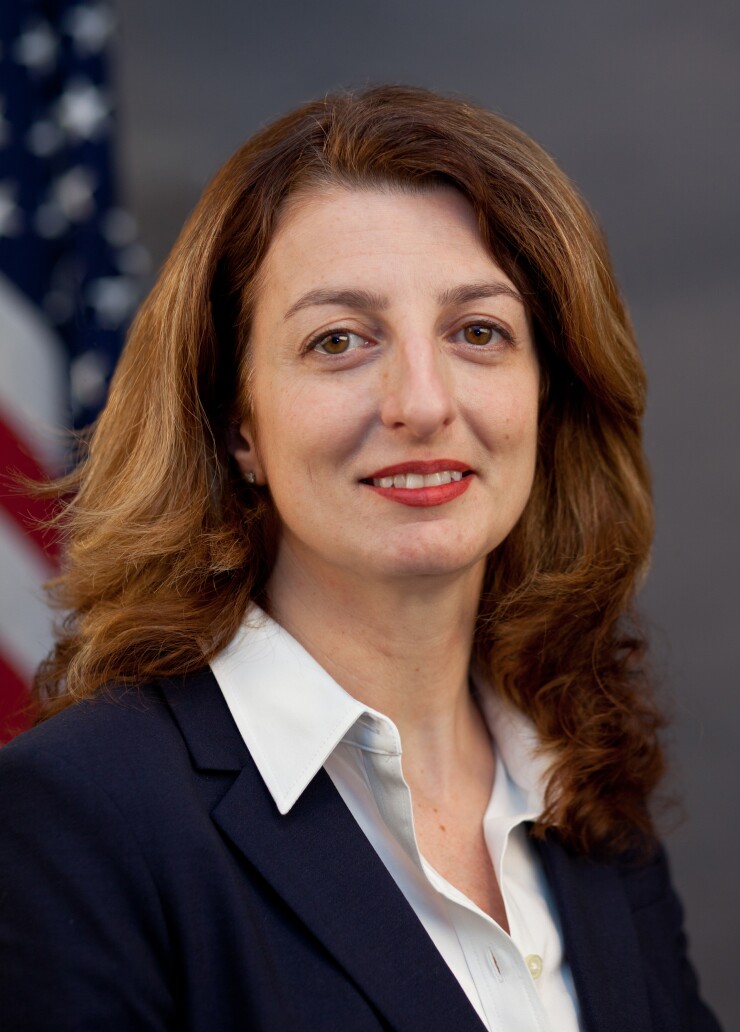WASHINGTON – Enforcement of the federal securities laws is likely to focus on disclosure and public corruption issues in the coming year, with a possible increased emphasis on the emerging area of municipal advisor enforcement, market participants said.
Securities lawyers and other stakeholders discussed the probable focus of Securities and Exchange Commission and Financial Industry Regulatory Authority enforcement of the laws and municipal securities rules in 2019 in separate interviews with The Bond Buyer. While enforcement actions arise from the discovery of bad conduct and aren’t totally predictable, the broad priorities set by the regulators and an examination of the recent trends can provide some clue as to what the muni market can expect.
“You can expect to see enforcement action in the same general areas as you’ve seen in recent years,” said LeeAnn Gaunt, chief of the SEC’s Public Finance Abuse Unit.

Among the areas Gaunt said her office expects to address is disclosure fraud, which she said is likely to arise mainly from false information in primary offering documents but could also come from misleading public statements. Gaunt said her attorneys would also be looking into cases of apparent public corruption and allegations of pay-to-play activity.
Gaunt said she didn’t expect any particular spike or drop in enforcement activity relative to prior years. But she did add that the SEC has become more educated about the municipal advisor business since the effectiveness of the SEC’s MA registration rule in 2014. Since that time, the SEC’s Office of Compliance, Inspections, and Examinations has been conducting exams of MA firms and the SEC has brought a number of actions against muni advisors.
“Bringing them into the regulatory fold and having them be subject to the examination of OCIE has helped us all learn more about how that business operates,” Gaunt said of MAs. “It’s becoming an increasing area for our attention.”
OCIE’s 2019 exam priorities, announced earlier this month, state that the office will be looking closely at MA operations.
“OCIE will continue to conduct select examinations of MAs that have never been examined, concentrating on whether these MAs have satisfied their registration requirements and professional qualifications as well as continuing education requirements,” according to the published priorities. “OCIE will also prioritize whether MAs provided the appropriate disclosures regarding their conflicts of interests or otherwise violated their fiduciary duty to a municipal entity. Examinations will also review for compliance with recently-effective MSRB rules, including those relating to advertisements by MAs and the standards of conduct for MAs obtaining CUSIP numbers on behalf of issuers.”
Leo Karwejna, managing director and chief compliance officer at PFM, said the SEC’s initial round of inspections was probably educational for both the SEC and for the MA community. He said the SEC is probably up to speed now.
“The first go-around they were trying to figure out how this all worked,” Karwejna said. “Now, by and large, they have that understanding.”
Under federal law, muni advisors have a fiduciary duty to put the interests of their municipal entity clients ahead of their own and the SEC
Since the Republican tax overhaul eliminated tax-exempt advance refundings, many in the market have predicted an increase in complex transactions as issuers seek to realize savings by other means. Karwejna said muni advisors had better be sure that they have the knowledge to properly advise their clients on those kinds of transactions. If not, they should bring an MA into the deal who does.
Other OCIE priorities include a focus on costs paid by investors, according to the SEC.
“Protecting Main Street investors continues to be a priority in 2019,” the commission said in a recent release. “OCIE will focus examinations on the disclosure and calculation of fees, expenses, and other charges investors pay, the supervision of representatives selling products and services to investors, broker-dealers entrusted with customer assets, and portfolio management and trading.”
John McNally, a partner at Hawkins Delafield & Wood in Washington, said he believes the SEC is interested in providing guidance on muni market disclosure and will limit its enforcement activity to clear violations of the securities laws. McNally was a participant in the SEC’s one-day muni disclosure conference Dec. 6, and said the participation of all the SEC commissioners, as well as Gaunt and muni office Director Rebecca Olsen, indicates that the SEC is placing a high priority on improving municipal market disclosure.

“The SEC is interested in what guidance they can provide to the municipal market in a new interpretive release, the last one of which was published in 1994,” McNally said. “It is clearly is a priority for the SEC, as evidenced by the participation of the chair, the other four commissioners, the director of the Office of Municipal Securities, and the chief of the Public Finance Abuse Unit. As a result, I think that the municipal enforcement actions over the next year will be directed to activity or disclosure that is in clear violation of the federal securities laws.”
Issues such as the role of municipal advisors in preparing official statements, due diligence responsibilities in the context of private placements, and how underwriters can show they “reasonably determined” that issuers have complied and will comply with continuing disclosure requirements will probably be addressed via guidance, McNally said.
Market observers have noted that under SEC Chair Jay Clayton, the commission appears to have moved away from the “broken windows” enforcement policy that characterized enforcement policy under the chairmanship of Mary Jo White from 2013-2017. The “broken windows” philosophy holds that by strictly enforcing smaller violations, enforcers can discourage would-be lawbreakers from committing more serious crimes.
Bond Dealers of America CEO Mike Nicholas said he has a sense that the “tone has changed” at the SEC under Clayton.
“It doesn’t seem like everything coming out of the SEC is driven by enforcement,” Nicholas said.
The Financial Industry Regulatory Authority declined to discuss its 2019 plans ahead of the formal release of its priorities. FINRA typically publishes its priorities within the first several days of January.





